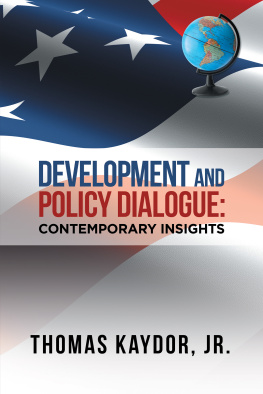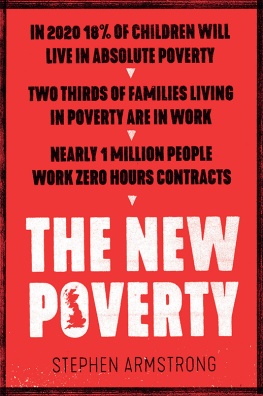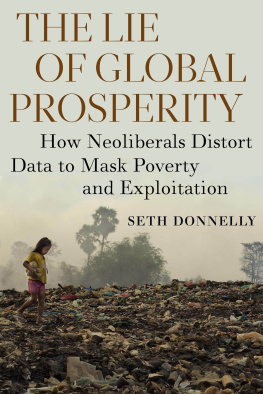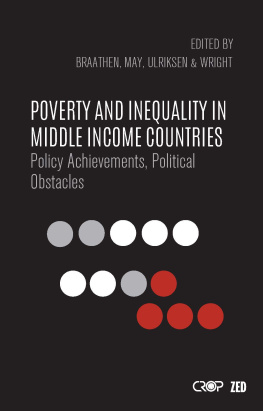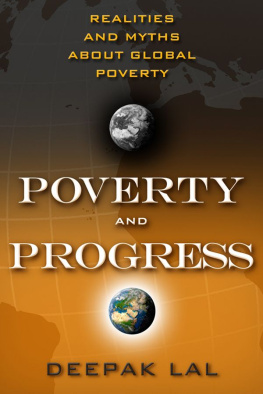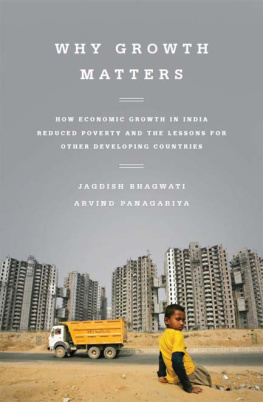Thank you for downloading this Simon & Schuster eBook.
Join our mailing list and get updates on new releases, deals, bonus content and other great books from Simon & Schuster.
C LICK H ERE T O S IGN U P
or visit us online to sign up at
eBookNews.SimonandSchuster.com
We hope you enjoyed reading this Simon & Schuster eBook.
Join our mailing list and get updates on new releases, deals, bonus content and other great books from Simon & Schuster.
C LICK H ERE T O S IGN U P
or visit us online to sign up at
eBookNews.SimonandSchuster.com
Praise for The Great Surge
Powerful, lucid, and revelatory, The Great Surge makes a vital argument and offers indispensable prescriptions about sustaining global economic progress into the future.
George Soros, chairman of Soros Fund Management
Steven Radelets brilliant new book demonstrates how the world has actually gotten better in recent years, not by a little but by a lot. This is a careful antidote to todays fashionable pessimism and should be read by everyone.
Francis Fukuyama, author of The End of History
With the airwaves filled with news of insurrection, desperation and stubborn diseases, this book jars you out of a cliched response. With his typical care and detail, Steve describes humanitys greatest hits over the last twenty yearsnever have we lived in a time when so many are doing so well. The job surely isnt done, but these pages provide the evidence the job can be done, if we choose to do it.
Bono, cofounder of ONE and (RED)
Steven Radelet is one of the leading development thinkers and practitioners in the world today. This captivating book shows that progress for the worlds poor is not just possible, it is happening right now all around the world.
Ellen Johnson Sirleaf, president of Liberia
Human nature is evolutionarily wired to notice bad news much more than good news. But good news there is, for billions of people on the planet. Using compelling stories and data, Steve Radelet shows us just how far developing countries have come and makes a convincing case that understanding this positive history is essential for future decision-making.
Anne-Marie Slaughter, president and CEO of the New America Foundation, director of Policy Planning, US Department of State 20092011
You wont see this in the everyday news headlines, but our world is making historic progress. Extreme poverty and disease are declining while school enrollment and self-government are on the rise. Georgetown professor Steven Radelet has written an uplifting, spirited and compelling book on what he calls The Great Surgean ongoing global transformation were privileged not only to witness but to help bring about. An effervescent roadmap to the recent past and what comes next!
Muhtar Kent, chairman and CEO of The Coca-Cola Company
At a time when doom, danger, and disaster dominate analysis of global trends, Steven Radelet pushes back against the pessimists with mountains of evidence and breathtaking vision. The Great Surge tells the other side of the story of global change over the past two decades, a story of unprecedented human progress in reducing poverty, hunger, illiteracy, oppression, childhood deaths, and even (despite the headlines) violent conflict. This is far from a nave book. A leading development economist with deep policy experience, Radelet readily acknowledges the enormous work still to be done, and the tenacious obstacles that persist. But in lucidly exposing the factors that have delivered transformative development progress, he shows us how leadership and cooperation at the global and developing country levels, combined with continued investments in technology, can continue to bring reductions in human misery that were once nearly beyond imagination. This is a stunning, wise, and deeply hopeful book that anyone concerned about global development must read.
Larry Diamond, senior fellow at the Hoover Institution & Freeman Spogli Institute, director of the Center on Democracy, Development and the Rule of Law, Stanford University
The Great Surge is one of the most optimistic and compelling looks at global development of our time. It challenges us to rethink both economic progress and environmental sustainability, especially when they come in conflict. While this dilemma has mystified many development experts for decades, Radelet charts a path forward that is not only possible, but imperative.
Howard W. Buffett, lecturer in International and Public Affairs, Columbia University
A must read. The strong optimism about global development brings up the key questions about how the momentum of progress from 1990 to about 2010 could be renewed in the post-2015 period.
Kemal Dervis, vice president and director of the Global Economy and Development program at the Brookings Institution, former administrator of the United Nations Development Programme, former minister of economic affairs for the government of Turkey

Simon & Schuster
1230 Avenue of the Americas
New York, NY 10020
www.SimonandSchuster.com
Copyright 2015 by Steven Radelet
All rights reserved, including the right to reproduce this book or portions thereof in any form whatsoever. For information, address Simon & Schuster Subsidiary Rights Department, 1230 Avenue of the Americas, New York, NY 10020.
First Simon & Schuster hardcover edition November 2015
SIMON & SCHUSTER and colophon are registered trademarks of Simon & Schuster, Inc.
For information about special discounts for bulk purchases, please contact Simon & Schuster Special Sales at 1-866-506-1949 or .
The Simon & Schuster Speakers Bureau can bring authors to your live event. For more information or to book an event, contact the Simon & Schuster Speakers Bureau at 1-866-248-3049 or visit our website at www.simonspeakers.com.
Interior design by Ruth Lee-Mui
Jacket design by Pete Garceau
Stack of coins Barcin/iStock
Library of Congress Cataloging-in-Publication Data is available.
ISBN 978-1-4767-6478-8
ISBN 978-1-4767-6480-1 (ebook)
For Carriemy partner, inspiration, best friend, and the love of my life
CONTENTS
PROLOGUE
November 9, 1989
ON NOVEMBER 9, 1989, THE People of Namibia in Southwest Africa Gathered in droves to wait under a sweltering sun and claim a prize for which they had fought for decades: the right to vote. A remarkable 98 percent of registered voters turned out over five days to select delegates to a constituent assembly that would draft a new constitution and set the stage for presidential elections and the formation of a new government.
The Namibians lining up that day had no way of knowing it, but their actions would reverberate far beyond their borders and mark the beginning of a slow but steady sweep of democracy across Africa.
They could not know that exactly as they were voting, forces were under way that would bring about some of the most important changes in world history. Far to the east that same day, Deng Xiaoping was resigning as chairman of Chinas Central Military Commission, his last formal post in the Communist Party leadership. Deng had transformed the Chinese economy by abandoning Mao Tse-tungs rigid Communism and adopting a more mixed, market-based economy. His resignation marked a key political change: It effectively ended the tradition of Chinese leaders ruling like emperors until death.a single supreme leader to the group leadership of the party and effectively marked the beginning of de facto term limits. Imperial strongman rule in China was over.
Next page

